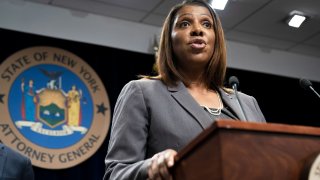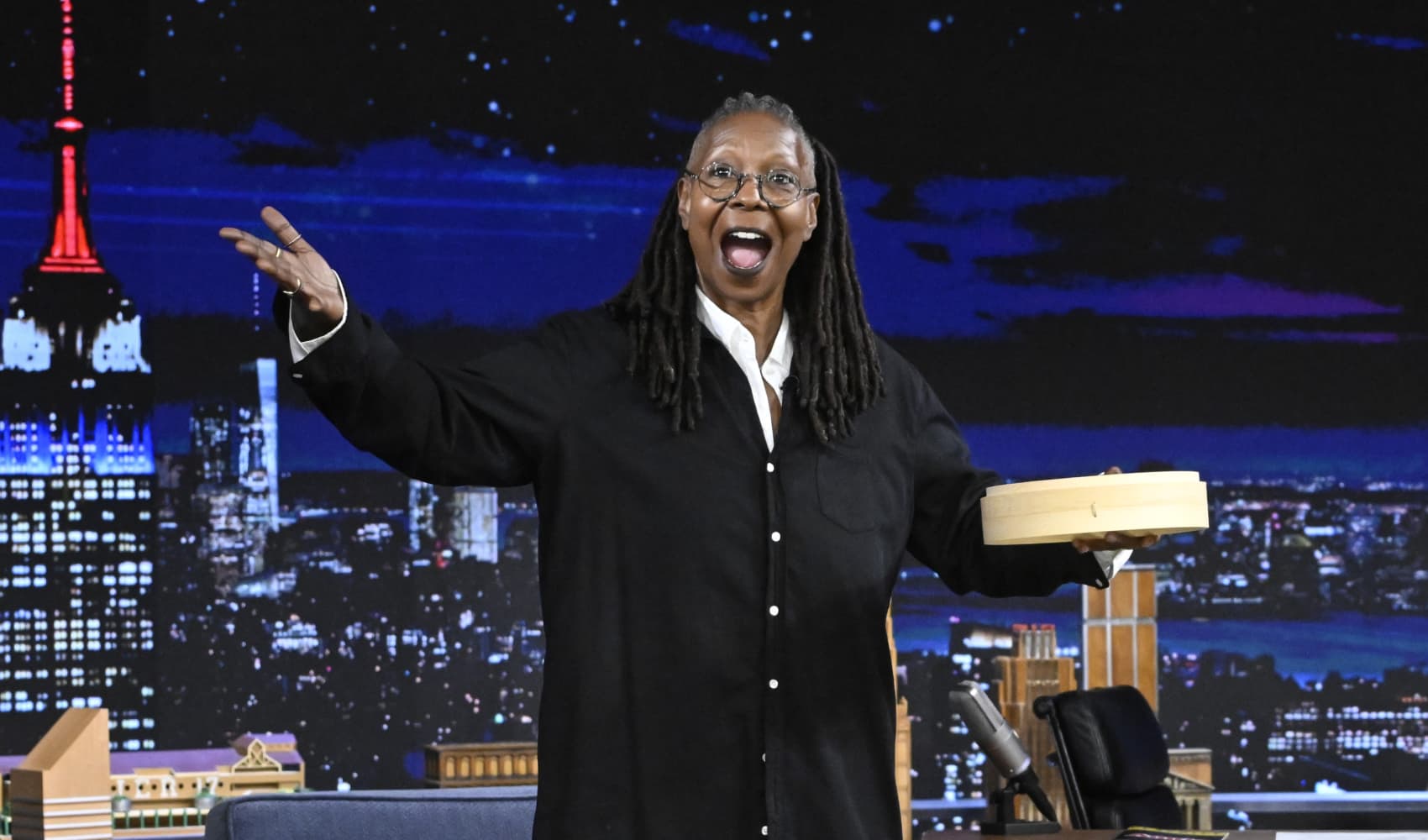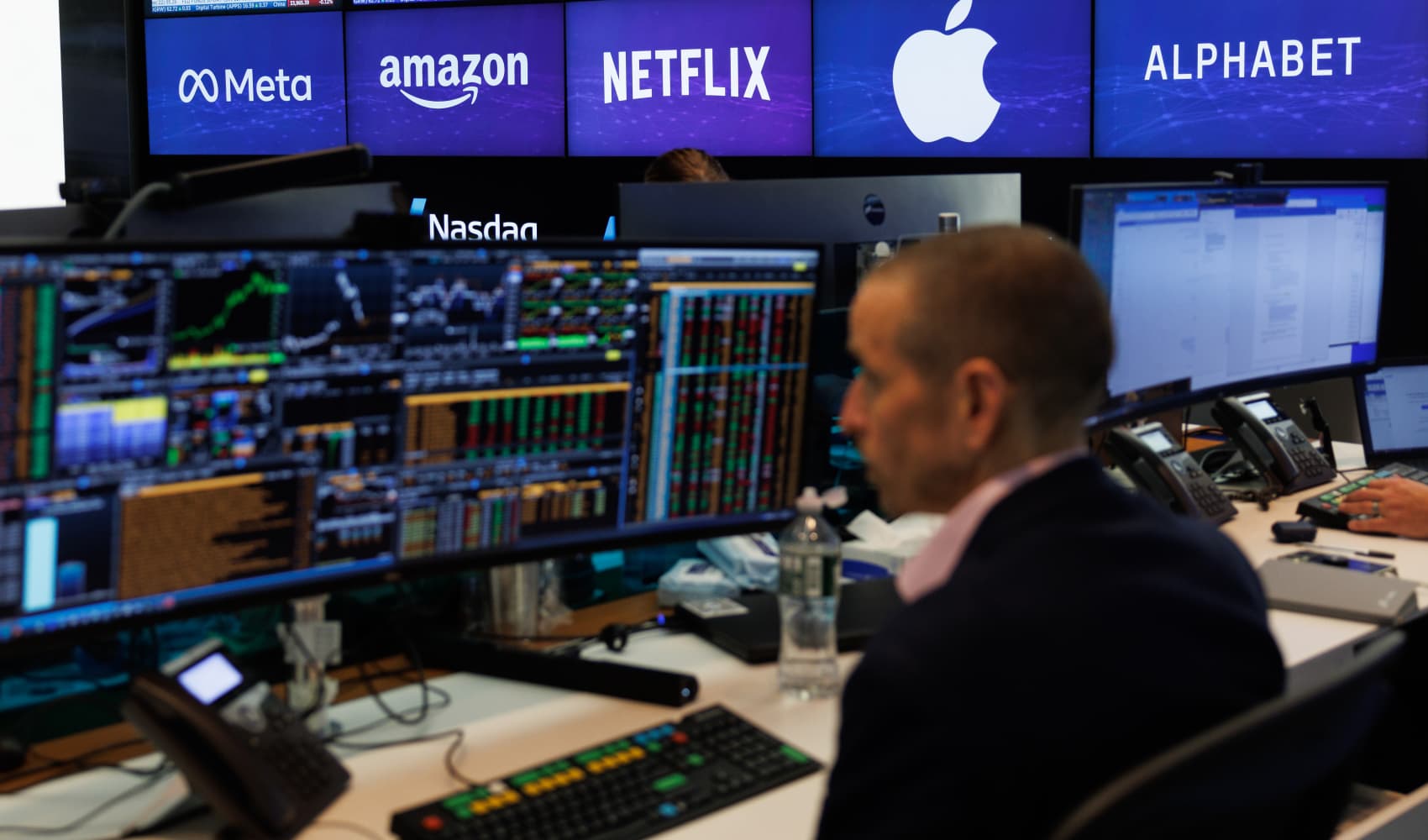
- New York Attorney General Letitia James said her office is continuing to actively investigate the Trump Organization's alleged inflation and deflation of property values to evade tax liability and receive other financial benefits.
- The U.S. Supreme Court's decision to allow the Manhattan District Attorney's office to obtain eight years of former President Donald Trump's income tax returns and other financial records as part of a criminal investigation would not affect her own ongoing civil probe, James said.
- Both investigations are looking at how the Trump Organization valued real estate assets for different kinds of transactions.
New York Attorney General Letitia James said Monday that her office is continuing to actively investigate the Trump Organization's alleged inflation and deflation of property values to evade tax liability in the state and receive other financial benefits.
James also said that the U.S. Supreme Court's decision to allow the Manhattan District Attorney's office to obtain eight years of former President Donald Trump's income tax returns and other financial records as part of a criminal investigation would not affect her own ongoing civil probe.
That ruling, issued Monday, "doesn't change the tenor of our lawsuit," James said in an interview for The New York Times' DealBook DC Policy Project.
"We will continue our investigation and upon completion we will announce our findings," James said.
James also said the Supreme Court's ruling would not mean that her office would get Trump's tax records from Manhattan DA Cyrus Vance Jr., who is expected to receive them this week from the former president's accounting firm through a grand jury subpoena.
"There's a wall of separation between the two offices," she said.
Money Report
The Supreme Court, in its ruling, denied Trump's request that it hear an appeal of lower court decisions upholding the legality of the subpoena, which was issued at Vance's request.
James noted that "we have obtained information on our own."
Feeling out of the loop? We'll catch you up on the Chicago news you need to know. Sign up for the weekly> Chicago Catch-Up newsletter.
"We are reviewing tax information from the Trump Organization," James said.
That tax information, which could include include property tax records, is distinct from the former president's income tax returns, which he has always kept secret.
There is overlap in the focus of the two probes, which are among the largest legal threats Trump faces a month after leaving the White House.
Both investigations are looking at how the Trump Organization valued real estate assets for different kinds of transactions.
And both offices are known to have particular interest in the Seven Springs Estate in Westchester County, New York, a 212-acre property.
The company had claimed a $21.2 million tax deduction on the property in consideration of the granting of a conservation easement, which bars development on nearly 160 acres of land.
James also is looking at valuations of Trump properties in Manhattan, Los Angeles and Chicago.
"In our investigation what we are looking at is the fact that the Trump Organization, based on the testimony of Michael Cohen, who was the attorney for the Trump Organization and for Donald Trump individually, they inflated their taxes for the purposes of gaining benefits from insurance companies, as well as from mortgage companies and then deflated the very same assets for the purposes of evading tax liability in New York State," James said.
Cohen, who made those claims during congressional testimony in 2019, is known to be cooperating with Vance's criminal probe.
While James noted several times that her investigation is civil in nature, she hinted that could change.
"At this point in time until we uncover some unlawful behavior or conduct, our investigation will continue as a civil matter," she said.
James has had repeated success in court with forcing the Trump Organization to cooperate with her investigation, despite objections.
At the end of January, a Manhattan Supreme Court judge ordered the Trump Organization to give James' investigators a set of documents they had requested.
A judge previously ordered Trump's son Eric Trump, who runs the company with his brother, to answer questions by James' investigators before the presidential election, not afterward, as Eric requested.
Trump, in a statement on Monday, bashed both James and Vance, as well as the Supreme Court, three of whose nine members he had appointed.
Trump has called both probes witch hunts and denies any wrongdoing.
"The new phenomenon of 'headhunting' prosecutors and AGs — who try to take down their political opponents using the law as a weapon — is a threat to the very foundation of our liberty," Trump said.
"That's what is done in third world countries. Even worse are those who run for prosecutorial or attorney general offices in far-left states and jurisdictions pledging to take out a political opponent. That's fascism, not justice—and that is exactly what they are trying to do with respect to me, except that the people of our Country won't stand for it."
Asked by DealBook columnist Andrew Ross Sorkin if she was surprised that Trump had not pardoned himself before leaving office, James said, "I'm never surprised by the conduct of the former president of the United States."
"There's been some rumblings about some 'secret pardons,'" James added. "I don't know."
Asked if she personally believed that Trump had pardoned himself and not disclosed that fact publicly, James said, "I really don't know. We will see."
"There's been a lot of speculation, but there's nothing more than that, pure speculation," she told Sorkin, who is co-anchor of CNBC's "Squawk Box."
Even if Trump did pardon himself, and if such a pardon was found to be legal under the Constitution, it would not protect him from being civilly sanctioned by James or prosecuted by Vance or the Fulton County, Georgia, DA, who is investigating whether Trump broke the law by pressuring the Georgia secretary of state to "find" him enough votes to overturn Joe Biden's win in the presidential election there.
Presidential pardons only apply to federal crimes, not to state crimes.
James had pushed for the successful passage of a law in 2019 that closed New York's so-called double jeopardy loophole, which was seen as a possible bar in some instances on state prosecutors filing criminal charges against a person who had received a presidential pardon.






